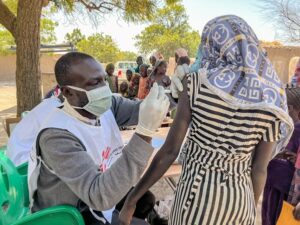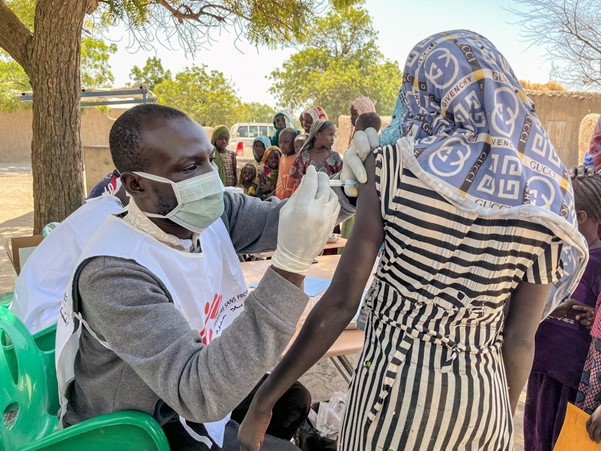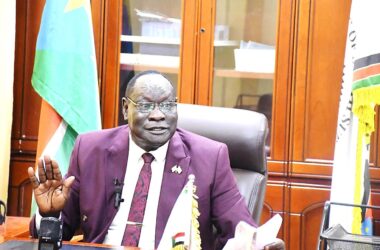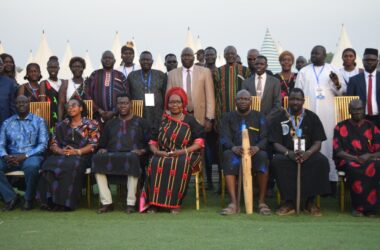
By Lodu William Odiya
The Humanitarian Coordinator for South Sudan, Anita Kiki Gbeho has warned that the young nation is among world dangerous place for humanitarian workers.
As the head of United Nations Office for the Coordination of Humanitarian Affairs (OCHA) in South Sudan, Kiki called on stakeholders to change the narrative.
In a statement to the media, OCHA noted that since the beginning of the year, there have been 26 causalities, including 15 humanitarian workers and 11 contractors who had been killed or injured.
The UN report came at the time where the country continues to experience several reports of hostilities toward humanitarian workers.
“South Sudan remains one of the most dangerous places in the world to be a humanitarian worker, ranking as number two so far this year, according to Aid Worker Security Database” the statement partly read.
She made the statement in commemoration of Humanitarian Day
World Humanitarian Day is observed every year on August 19. It was established in 2008 to commemorate the 2003 bombing of a Baghdad hotel that killed 22 aid workers.
“On World Humanitarian Day, we pay tribute to humanitarian workers in South Sudan and around the world, remember those who have lost their lives in the line of duty, and rally support for people affected by crises,” said Kiki.
Kiki added that the escalating insecurity has forced 56 humanitarian workers to relocate from their operational areas.
“Between January and July 2025, over 200 incidents of direct violence against humanitarians and assets were reported, up from 176 last year” she added.
Kiki underlined most humanitarian workers are South Sudanese nationals, serving their own communities with extraordinary courage and commitment.
“On World Humanitarian Day, we pay tribute to humanitarian workers in South Sudan and around the world, remember those who have lost their lives in the line of duty, and rally support for people affected by crises,” said Kiki.
According to reports, two clearly marked MSF boats travelling from Nasir to Ulang in Upper Nile state came under attack when unidentified gunmen opened fire, forcing the MSF staff aboard to jump into the river and swim to safety in a nearby village.
On 14 April 2025, MSF’s hospital in Ulang was violently looted by armed men in broad daylight, destroying property and threatening patients and staff.
Ulang hospital was the only functioning hospital in the county, and these events have led to devastating consequences for the population, leaving more than 150,000 people without access to life-saving medical care.
On May 3, the MSF hospital in Old Fangak, Jonglei state, was bombed by two gunship helicopters, destroying the pharmacy and vital medical resources, rendering provision of medical care in the facility impossible.
The attacks led to temporary and full closure of all hospital and outreach activities in the dangerous locations and also spiked condemnation by the civil society organizations.
Also United Nations Secretary-General António Guterres, urged governments around the world to safeguard and support humanitarian workers.
In a video message posted on his X account in honor of World Humanitarian Day, Guterres cautioned of a record-breaking toll in 2024, as at least 383 humanitarians were killed, over half of whom were in Gaza.
He described humanitarian workers as “the last hope for more than 300 million people affected by conflict or disaster.”
UN statistics show that killings of aid workers surged by 31 percent between 2023 and 2024, largely fueled by the ongoing war in Gaza. State actors were found to be the primary perpetrators of these attacks.
However, according to the Aid Worker Security Database, the highest number of serious attacks last year occurred in the Palestinian territories (194), followed by Sudan (64), South Sudan (47), Nigeria (31), and the Democratic Republic of Congo (27).
This alarming pattern has continued into 2025. By August, 265 humanitarian workers had already been killed.



